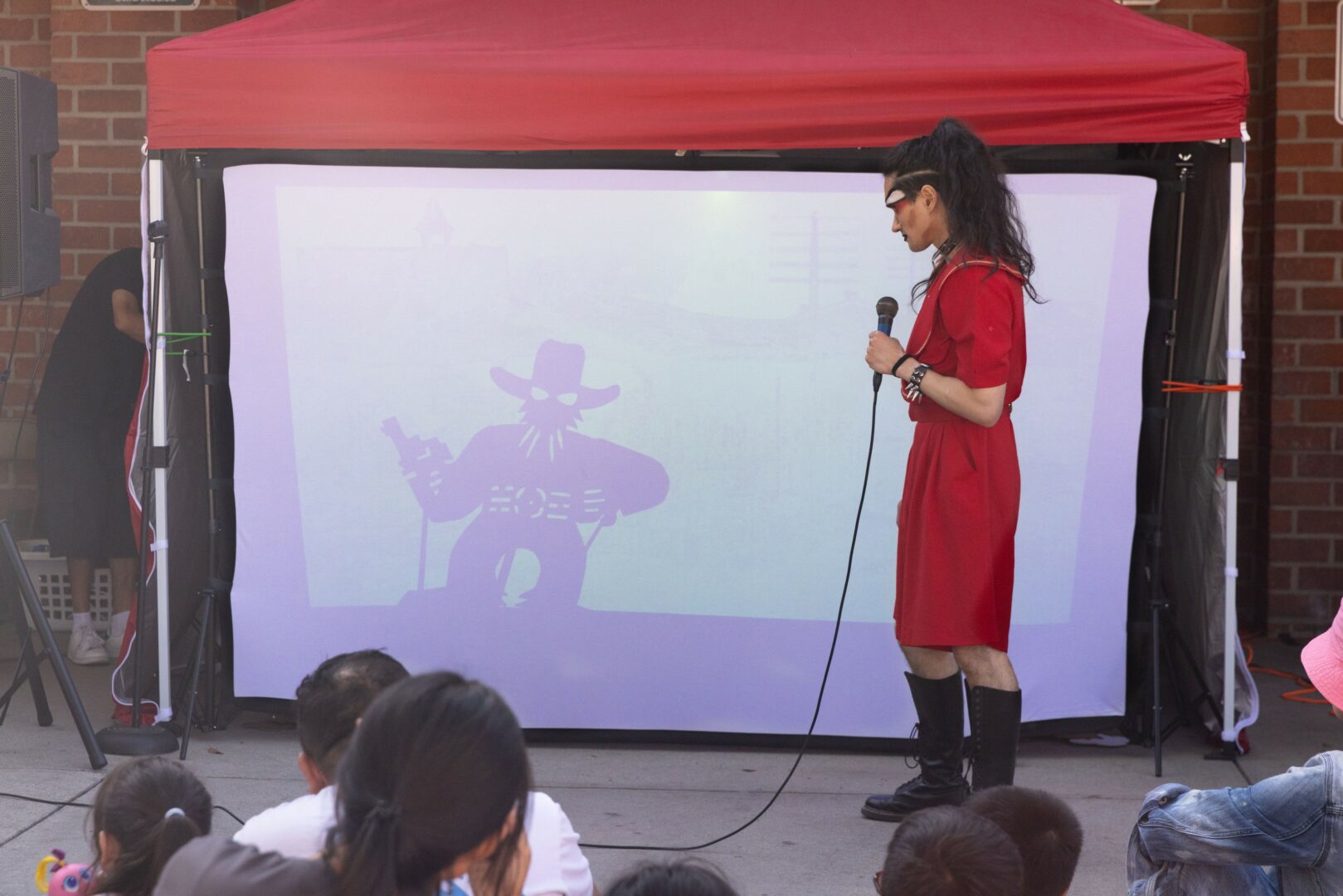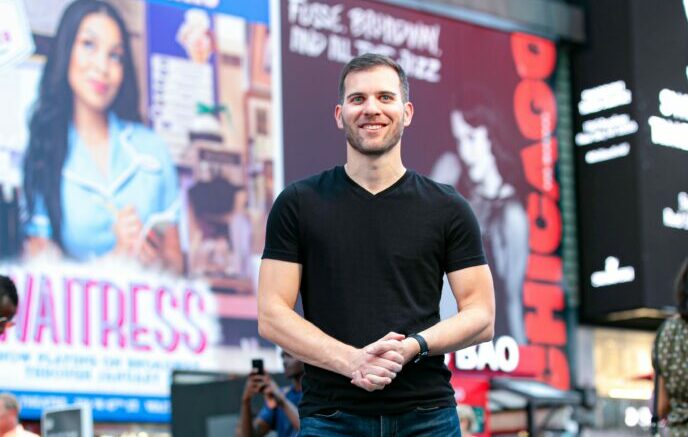We caught up with the brilliant and insightful Micah Huang a few weeks ago and have shared our conversation below.
Micah, first a big thank you for taking the time to share your thoughts and insights with us today. I’m sure many of our readers will benefit from your wisdom, and one of the areas where we think your insight might be most helpful is related to imposter syndrome. Imposter syndrome is holding so many people back from reaching their true and highest potential and so we’d love to hear about your journey and how you overcame imposter syndrome.
A question I often ask myself about Impostor Syndrome is: Do I actually feel like an imposter, or am I concerned that other people are going to perceive me as an imposter?
I’ve experienced both types, and I’ve noticed a pattern: The first type, which might be termed Internal Imposter Syndrome, happens most often in situations that I’ve entered out of necessity, not by my own choice. I experienced this a lot at day-jobs I took in my teens and 20’s, starting in the service industry and then moving into education. I didn’t really want to be there, and sometimes I would take on multiple jobs at once, so I always felt disoriented, like I hadn’t learned the job properly. Most of my social interactions at work were shallow, and tended to be with other people who, like me, didn’t really want to be there.
The second type, which I call External Impostor Syndrome, is different. It occurs in jobs where you really do know what you’re doing, and you (often) really do want to be there. In these cases, you yourself might be and feel highly qualified and highly confident, but circumstances–or individual people–around you make you feel like your legitimacy is being questioned. This is related to the feeling of gaslighting, which I think all of us experience at some point. In my experience, External Imposter Syndrome happens in work environments that are highly desirable and highly competitive. These environments create incentives for employers, colleges, and sometimes even clients to put you down and keep you under pressure in order to try and extract “maximum value” from your work. It makes a grim kind of sense: if you’re feeling good, like you deserve respect and if that feeling is being reinforced by the people around you, you’re more likely to charge a fair wage for your work, give yourself more time and space to complete your tasks, and prioritize self-care. Unfortunately, that’s not really compatible with free-market capitalism. A lot of high-status employers claim to support you in this, but at the end of the day, you’re an investment and they want a good ROI. External Imposter syndrome is a symptom of the competitive, cutthroat social dynamics that proceed from that economic reality.
I’ve found that Internal Imposter Syndrome is actually easier to overcome: If you’re legitimately unhappy with your job performance, and don’t feel confident in your role, one of two things will eventually happen: Either you’ll get better at the job and learn the tricks of the trade, or you’ll leave that role and start again somewhere else.
External Impostor Syndrome is harder to overcome. Because it’s not coming from you, dealing with it is a social problem, not a personal or spiritual one. However, in the years that I’ve been working as an artist, writer, organizer and scholar (At Harvard and Independently) I’ve come up with three ground rules that help me deal with External Impostor Syndrome:
1) Focus on tasks and outcomes. When you’re doing work that has a significantpotential impact, a lot of people and organizations around you will question your qualifications, track record, and even your character. In the Arts and Culture sector where I work, your personal Identity, in particular, will be subject to intense and invasive scrutiny. Here’s the thing, though: the people who are making rude noises about you are doing that for their own reasons, often because they perceive you as competing with them. It’s good to be aware of what people are saying, so that you can respond if anything crosses the line and becomes harassment, but it’s also very important to stay focused on the task at hand. You know what you’re doing, and you have a lot of control over the processing outcomes of your work. The noise is just, well… noise.
2) Prioritize your core relationships. This one is probably the most important of all: There are people in your life who understand where you’re coming from, who support you and who, frankly, have proven themselves to be deserving of your trust. Those are the people who matter. It’s easy to get caught up worrying about whether the broader community or general public is on board with you, or approves of you, but here’s the truth: the broader community or general public doesn’t care that much about you-even if you’re in a highly visible, leadership role. It’s the people who are really close to you, people with whom you have strong bonds of mutual support, in whom you should invest your attention and energy.
3) Ego and Identity are tools. They’re not you. There’s a lot of emphasis on the self in our culture, and you need to put a strong, curated image forward in any kind of professional environment, but you need to respect the boundary between the part of you which is an Image, and the part of you which is an Experience. The Image is like your work clothes, makeup and other tools. It’s you, but its primary function is to be part of a community or system in which many people coordinate their actions to produce specific results. The image is subject to measurement, judgement, and needs to adapt to social pressures in order to survive. The Experience is different. It’s the sunlight on your skin, the wind at your back. The feeling of being you. Impostor syndrome can’t touch that.


Let’s take a small detour – maybe you can share a bit about yourself before we dive back into some of the other questions we had for you?
Micah Huang is a musician, storyteller and community advocate whose work centers marginalized narratives through the integration of traditional practices such as spirit communication with cutting-edge technological tools and techniques. Since 2019, Micah has written text and composed music for a number of performance projects commemorating the 1871 LA Chinatown Massacre. Most prominent among these was the audio drama Blood on Gold Mountain (2021) which charted on Apple Podcasts’ top 100 in the US and 8 other countries, with bootleg episodes reaching more than a million listeners in the PRC during the protests of 2022.
Micah’s 2022 NEA New Arts project American Dreams/Asian Nightmares addressed the mental-health impacts of pandemic-related racist rhetoric and violence, immersing the audience in AAPI interiorities through data sonification, musical biofeedback, and re-imaginings of traditional creative practices. Other projects include a performance initiative promoting solidarity between Immigrant and Indigenous communities (in collaboration with the Gabrielino Shoshone Tribal Council) and the LA Chinatown Hungry Ghost Festival–a community revitalization initiative supported by Community Partners at the California Arts Council.
Micah’s past work has been supported by the National Endowment for the Arts, UCLA Chancellor’s Award Initiative, Kellogg Foundation Truth, Racial Healing & Transformation Grant, Holmes Performing Arts Fund at the Claremont Colleges, Tufts University Granoff Fund, Pomona College Pacific Basin Institute, EnviroLab Asia at Claremont McKenna College, and the New England Conservatory’s Entrepreneurial Music Awards, among others. Micah was a 2013 Fulbright fellow in Musicology, engaging in collaborative performance, experiential research and community outreach with practitioners of Romungro Cigányzene in Budapest, Hungary.
Micah is committed to collaboration, under a wide range of circumstances. One example from 2023 is the provision of interactive live-scoring for íyo’toróvim yaraarkokre ‘eyoo’ooxono (We the Caretakers Remember our Land), in which Indigenous leaders selected by the Gabrielino Shoshone Tribal Council (West Covina, CA) share oral histories illuminating current triumphs and challenges in their respective communities. Other past collaborations include the 2019 concert series Under Our Skins: Deprogramming Prejudice Through Words and Music, which featured semi-improvisational live-scoring of personal anecdotes from faculty, staff and students at Tufts University, the New England Conservatory and Scripps College; ArtSmooch (2018) a setting of selected works by Pulitzer finalist and Kingsley Tufts Award winner Angie Estes; and III (Wishbones) musical score to video exhibit featuring the eponymous sculpture by Getty Medal winner Lorna Simpson.
Micah’s first musical instrument was a handmade rattle, gifted at age 4 from Tewa Elder Peter Garcia of Ohkay Owingeh (San Juan Pueblo, NM). In the years since, Micah has had the honor of learning from teachers and mentors including Genoa Keawe, (Legendary Hawaiian singer) John York (The Mamas & The Papas, The Byrds) Jesus “Cusito” Peñalver (Rumberos de Cuba) and John McDonald (Tufts University).
Due to various ironic and improbable challenges experienced as a teen, Micah gained a practical education in socially engaged music praxis as a member of the Pomona, CA hardcore punk ecosystem. The fundamentals of Micah’s approach to arrangement, improvisation and the music/dance/protest continuum were learned while playing guitar for underground band Kategory 6.
Side lines are an essential part of Micah’s approach to creative work. As a singer-songwriter, Micah has performed widely in the western United States, at venues of varying conventional respectability. Micah’s song Children of the Endtimes was a finalist in the 2020 John Lennon International Songwriting competition, and a semi-finalist in the 2020 ISC Songwriting Competition. Micah has also worked as a sound engineer and freelance music producer, including commissions from NPR Podcasts, Evolve Dynamicz and a number of dancers and University Dance departments. Micah is a lead producer on upcoming releases from Colombian-American rapper Cesar Agudelo, and Bhutanese Drangyen master Goen Tshering.
Micah has appeared in such media outlets as KCRW, Now This News, KPBS, Spectrum 1 News, The Mercury News, Orange County Daily Register and the Los Angeles Daily News, among others.
Instagram: @hungryghostnote/


Looking back, what do you think were the three qualities, skills, or areas of knowledge that were most impactful in your journey? What advice do you have for folks who are early in their journey in terms of how they can best develop or improve on these?
1) Humility. If you try and do anything that feels really significant, you’re going to get knocked down a few times. Learning to appreciate that process is key to staying in the game.
2) Compassion. Other people don’t always agree with you. They won’t always be nice to you, or show you the respect you deserve. That’s where they are in their process. You can’t change them, and that’s ok. To quote author Ken Liu, “nobody is the villain in their own story.”
3) Reciprocity. There’s a middle path between doing everything for yourself, and sacrificing yourself completely for other people. If you step back, and understand yourself as part of a complex, messy, beautiful network of human connection, you’ll be able to plot your course toward the most fulfilling and beneficial (spiritually, materially, etc) course of action. It’s not always easy, but it is always worth the effort.

Alright, so before we go we want to ask you to take a moment to reflect and share what you think you would do if you somehow knew you only had a decade of life left?
We’re living in a time of intense social and political polarization, in which people are increasingly hostile to others who they perceive as different from themselves. This poses a major challenge for creative workers and organizers like myself, who are concerned with building community resilience through solidarity and cooperation.
There’s an overwhelming emphasis on organizing around what your community is “against,” rather than what your community actually needs to improve their day to day lives. A lot of this is driven by the way that social media algorithms are structured: This has been extremely well studied, and I’d highly recommend books like “The Age of Surveillance Capitalism” by Shoshone Zuboff, and “The Chaos Machine” by Max Fisher to anyone interested in learning more.
We need to create opportunities for ourselves and our communities to interact more in person, to stop out mental space form being colonized by ideas and feelings that are fed to us by online marketing algorithms. This isn’t a political or ideological statement, it’s one that’s grounded in my research into the social and neuroscientific components of mental and behavioral health.
We have to prioritize our one experiences, over our public images. We deserve it.

Contact Info:
- Website: https://www.micahhuangmusic.com
- Instagram: @hungryghostnote
Image Credits
cover image: Emma Gies Performance images: Alex Tizoc Zamora @zamoravisuals Studio photos: Olivia Moon @halfasianlens




